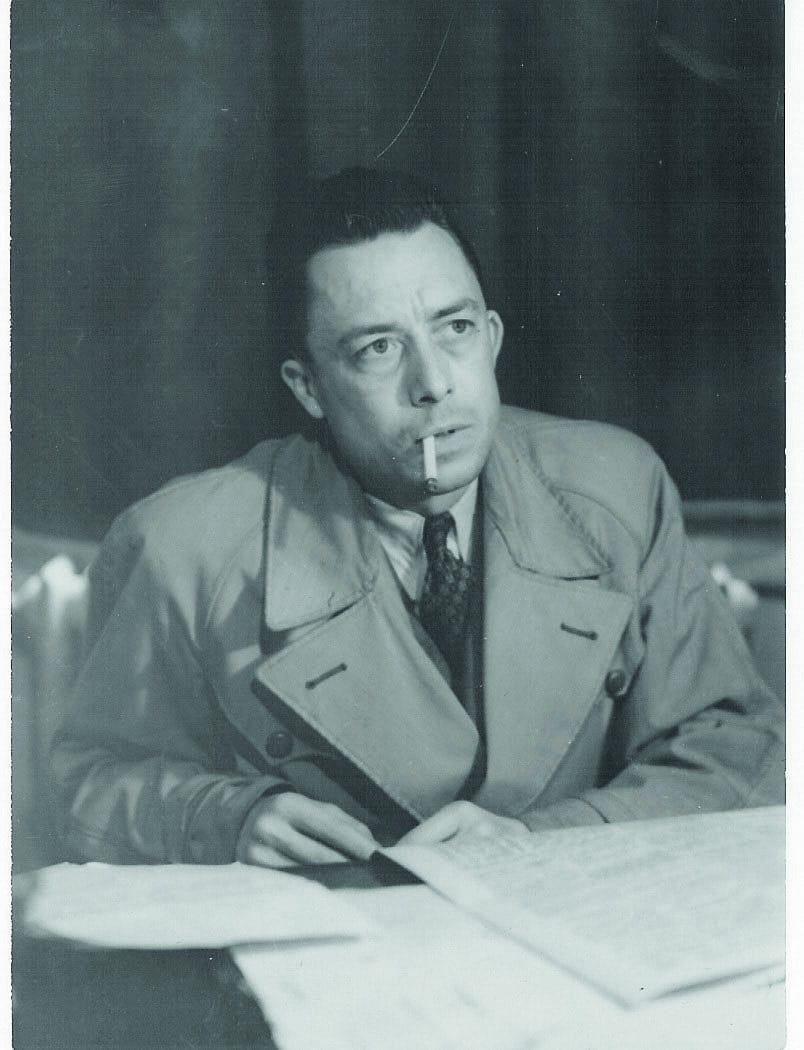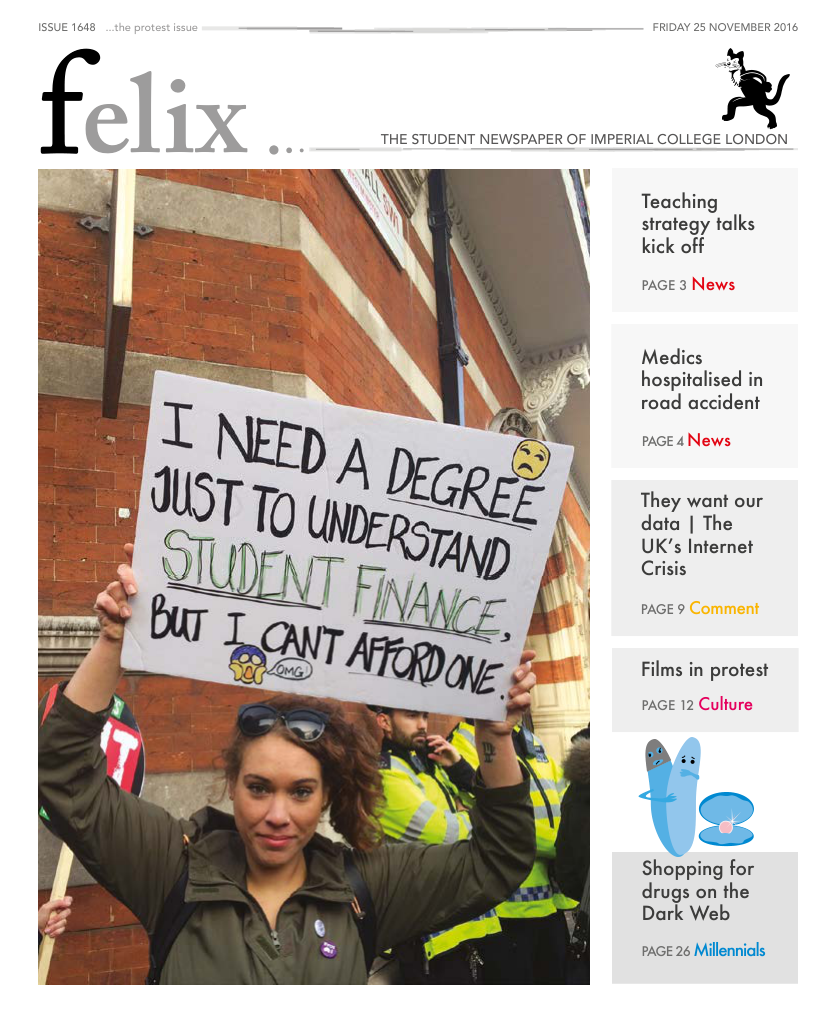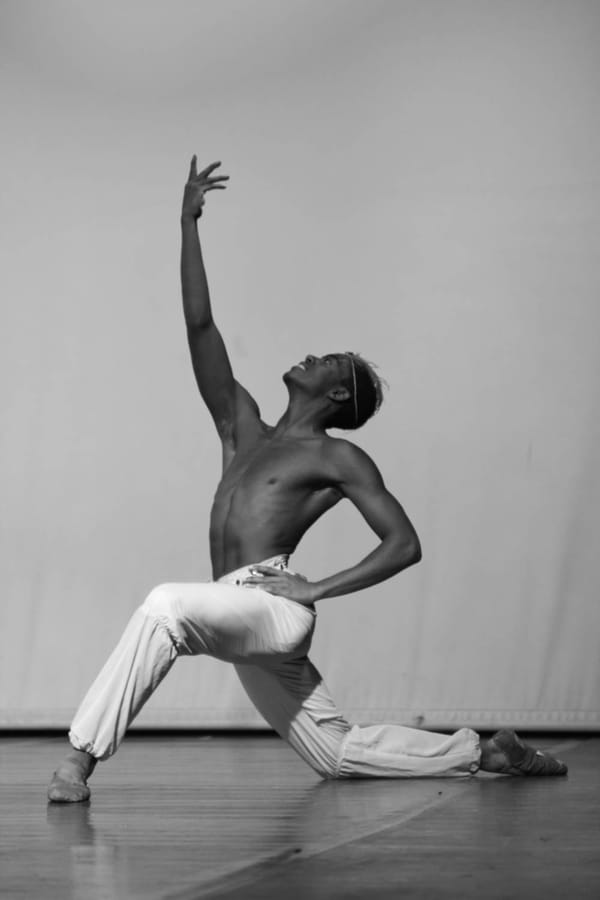Albert Camus | The Rebel
The Rebel is the punctuation mark to 19th and early 20th century philosophy

In Rick Famuyiwa’s Dope, Jay-Z’s Blueprint is described as the "punctuation mark to 90s Hip-hop". It seems to me that, in many ways, Albert Camus’ The Rebel is the punctuation mark to 19th, and early 20th century philosophy. Camus is often regarded, rightly, as an absurdist and, more questionably, as a humanist. In his earliest works, Camus took a purely absurdist stance: questioning the meaning of life and whether it was worth living at all. However, his experiences as part of the French Resistance during the Second World War galvanised his belief in the importance of safeguarding all human life. In his first post-war novel, The Plague, the protagonist pins down the crux of Camus’ stance – there is no grandeur or heroism in saving lives; it is simply what must be done. The Rebel, arguably the philosopher’s most important work, is the culmination of these ideas.
It is an exploration of rebellion and revolution, both metaphysical and historic, in the context of the dominant philosophies and artistic movements of the era. Taking a harsh lens at both the French and Russian Revolutions, The Rebel considers the noble birth of rebellion and its ultimate domination and corruption by firm ideology. More than this, it offers a just way to live while making the world a better place.
Moral absolutism and unflinching adherence to an ideology are highlighted as dangerous pitfalls that quickly lead the revolutionary into doing more harm than good. Indeed, this may seem ironic given the previously stated commitment to absolutely protecting life. However, one of the book’s great strengths is that this principle is derived logically, with no appeals to morality. The reader is invited to satisfy themselves of this deduction, rather than accept it as an a priori. In fact, one of the great strengths of the writing is precisely this. No unjustified demands are made of the reader, and the tone is not fierce or overly fanatical.
The titular rebel is characterised succinctly: an individual who sees inequality or injustice being exercised, either upon themselves or others, and desires its end. Camus begins with man’s metaphysical rebellion against God. Dostoevsky’s Ivan Karamazov is cleverly summoned here to give form to the quintessential rebel. The suffering of a child in this world is considered too steep a price to pay for God and the eternal kingdom in the next one. Ivan’s rejection of the Divine encodes one of the central themes of The Rebel, the idea that suffering today cannot be forfeited in favour of some nebulously defined future utopia. Poetically, Ivan’s later fate, left unsaid by Camus, also analogises the aforementioned corruption of rebellion. In general, the work argues that ideals must end when they demand the debilitation or destruction of others. Camus chastises the French Revolution for its eventual treatment of the nobility. He astutely points out the juvenility of the wanton slaughter undertaken in an attempt to tear down the principle of Divine Right and, by extension, God. He then tackles the philosophical behemoth of the 20th century, Nihilism. By pointing out the logical inconsistencies within it and its unsavoury aspects, he strives to tear down the seemingly utopian idealism of the time. The false promises of Nazism and Communism are shown to simply be the old wolf of religion in new clothing. Heaven is replaced with some infinitely far off perfect world, where the 'temporary' suffering and slavery of certain people now is justified by the 'eventual' ultimate freedom of all. Indeed, the bravery of this stance must be praised. At the time of The Rebel’s publication, much of the French intelligentsia were avid supporters of Communism. Camus was one of the few willing to make a stand.
Rebellion tends to evoke images of violent conflict. The Rebel shows us that true rebellion is the exact opposite. It is not the fight for absolute freedom, which means the freedom of the strong to dominate the weak. Nor does it desire absolute justice, the application of which necessitates a fascistic domination of everything. It is instead a never-ending battle to demand better. It is self-sacrifice, and valuing your fellow man above all else. Vigilance must be maintained for that which would sacrifice life today for an unknown tomorrow. Camus’ greatest wisdom lies in recognising that rigid adherence to any ideals is dangerous, and that ideals cannot supplant reality. But, in the spirit of his voice, don’t take my word for it, read The Rebel.








